In our ongoing series considering some of the key issues in the revenue-sharing debate, we move the focus to the man who would like to relieve the Amaury family of the burden of reigning over a media and sporting empire that encompasses two of France’s most popular newspapers and the world’s favourite bike race.
In the Summer of 2010 two newspapers owned and operated by the Amaurys – Le Parisien and its sister title, Aujourd’hui en France – were put up for sale. The bankers at Rothschild valued the combined titles at €200 million, with a reserve of €170 million. Expressions of interest came from rival publishers like Serge Dassault (Le Figaro) and Vincent Bolloré (Direct Matin, Direct Soir, Direct Sport). There was also some interest from Belgium (the owners of La Voix du Nord), Germany (the Springer group, owners of Bild) and from the UK (Mecom, David Montgomery’s struggling wannabe media empire).
But no one was biting at the €200 million asking price. The Belgians valued the titles at just €100 million and only wanted to buy 80% of them. Dassault – whose other interests, like those of Arnaud Lagardère, also extend into the world of warfare – offered no more than €130 million. The “For Sale” signs, the Amaurys declared, were taken down.
Why were the Amaury’s willing to dump Le Parisien? Had they simply had their fill of the trouble and strife – declining circulation and a truculent workforce – owning it brought them? One reason given by some is Arnaud Lagardère, whose media to munitions empire has owned 25% of the Amaury Group since the eighties.
Like Marie-Odile Amaury, Arnaud Lagardère has only relatively recently taken control of the family business. In the case of Lagardère, that business was originally created by his father, Jean-Luc Lagardère. From humble beginnings as an engineer with the aircraft manufacturer Dassault, Lagardère Senior began to create an empire that ranged from munitions (the armaments and missile company Matra) through to media (the radio station Europe 1, the publisher Hachette). When Jean-Luc Lagardère died in 2003 it fell to his son, Arnaud, to take the helm of the empire his father had created.
Like Marie-Odile Amaury, Arnaud Lagardère has encountered a certain amount of resentment simply for inheriting the family business. Frequently he has found himself compared unfavourably with his father, in the same way that Amaury has been compared unfavourably with her husband. “I am an heir, therefore I am stupid,” Lagardère once pointed out to a biographer. “That is the way we see heirs in this country …” For some in France, dynastic succession in business is seen as being too close for comfort to the concept of royalty. The French know how to deal with royalty.
But whereas Marie-Odile Amaury seems determined to remain true to the ideals of her husband and preserve the family empire, Arnaud Lagardère seems to be rebelling against his dead father and has set himself the task of disassembling the empire he inherited, in order to build it anew. Much of that empire was made up of minority holdings in different enterprises. Recently, Lagardère has decided to extricate the business from these investments. Stakes in Marie Claire (42%), Canal+ (20%), La Dépêche (15%), l’Alsace (20%) and others are all up for sale. A large part of Hachette has already been sold to Hearst and his stake in Le Monde‘s online division has also been sold.
What, though, of Lagardère’s 25% stake in the Amaury Group? Curiously, when it came to the Amaurys, Lagardère didn’t want to be a seller. He wanted to be a buyer. In the spring of last year he publicly made the widow Amaury an offer he thought she couldn’t refuse: sell him the whole business or he would dump his minority holding.
Why, if he’s unloading his media interests elsewhere, did Lagardère want the Amaurys’ business? Simple: Lagardère has looked at the sporting landscape and sees gold in them thar hills – a $100 billion global market – and has struck out for the end of the rainbow, shovel and pick over his shoulder. Last year he consolidated his Group’s existing sports interests – which date back to the sixties when his father oversaw the sponsorship on the Matra-Ford F1 team – in a new vehicle, Lagardère Unlimited, whose objective is modest: to become the premier player in international sports marketing and media rights within five years.
Key to Lagardère’s plan is growth through acquisition. The Lagardère Group has already absorbed companies like Sportfive, which handles European media rights (mostly football); IEC In Sports, which deals with sports rights for Olympic sports; Upsolut, a German organiser of sports events; Prevent, organiser of tennis events in Sweden; World Sports Group, which handles media rights in the Asian market (mostly football, cricket and golf); and Best, which is involved in athlete representation, event management, and the sale of media rights in the US. Lagardère has also taken a minority stake in Saddlebrook, an academy which seeks to train the basketball, baseball and football stars of tomorrow.
An attempt to buy into IMG – the company Lagardère seems to measure his own success or failure against – failed. And the widow Amaury showed her mettle and rebuffed his advances too.
Lagardère responded like a lover spurned. He accused the Amaurys of having a conflict of interest, between L’Équipe, the events organised by ASO, and the company’s stake in the online-gaming site Sajoo.fr. Never mind the fact that he himself is looking to build a vertically-integrated sports marketing and management empire that would see him training athletes, managing them when they turn pro and organising events at which they might compete. That’s neither here nor there. What matters, he would have the world believe, is the Amaurys’ conflict of interests. Not his.
Having been brushed off by the Amaurys, Lagardère now wants to cash in his stake in the Amaury Group. And the Amaurys need to finance the buy-out of their dissident shareholder. Hence, it is argued, the abortive proposal to sell Le Parisien and Aujourd’hui en France. How much the Amaurys need to raise is open to debate. For a start it depends on how much they have sitting idle in the petty cashbox. Which got a bit of a boost last year when the Amaurys sold L’Écho Républicain, a small, local paper which it originally bought in 1999 (from, as fate would have it, the Lagardère Group).
Of bigger import though is the valuation of Lagardère’s shareholding in the Amaury Group. Some have valued the Amaury Group at €2 billion. Lagardère himself says his 25% stake is worth €200 million. The Amaurys say it’s only worth €100 million. Between the ask and the offer there is clearly a lot of ground to be made up. Ground which representatives from each side will have to negotiate (Crédit Agricole representing Lagardère, Rothschild presumably representing the Amaurys).
That is, of course, unless one can convince the other to change their mind: either the Amaurys persuade Lagardère to hold on to his shares; or Lagardère convinces the Amaurys to give him what he most wants – the Tour de France and the rest of the Amaury Group’s stable of sporting events and media-rights-management interests.
A third option would see the Amaurys sitting back and letting Lagardère sell his shares and then learning to live with his replacement, whomever that might be. Not many people, though, want a 25% stake in a private company given how little control over its affairs that offers them. Or the exit strategies open to them.
How much of a competitor is Lagardère Unlimited to ASO? ASO’s principle sporting interests are event management and media rights. Lagardère Unlimited’s principle interests are athlete management and media rights. On the event side of its books, Lagardère Unlimited has twenty events across eight disciplines (American Football, Basketball, Cycling, Figure Skating, Football, Golf, Tennis, and Triathlon), none of them having the status of something like the Tour or the Dakar. In cycling, there are just two events, both built around the model of a pro race plus a cyclo-sportif: the Skoda Velothon in Berlin and the Vattenfall Cyclassics, which incorporates Germany’s sole contribution to the UCI WorldTour series. Compared with the Amaurys’ stable of cycling events, Lagardère Unlimited must seem like a gnat, of no great consequence.
But even gnats can sting. And Lagardère has stung the Amaurys: in the most recent bidding for control of the European TV rights for the Winter and Summer Olympics – covering the 2014 and 2016 Games – the Amaurys lost out to their dissident shareholder.
Despite cycling itself not being central to Lagardère’s plans – his preference is for sports with balls – the little interest he has shown so far in the sport leaves questions to be answered. Such as just what was he discussing with Lance Armstrong when the two had a meeting during the Tour of Murcia last year? Could he have been attempting to sign the American to his athlete management agency? Or was he discussing his bid for the Tour de France with a man who himself made a putative attempt to buy the Tour from the Amaurys?
And given the year the sport has gone through – with threats of secession by some team managers and the AIGCP generally trying to reorganise the way the sport is run so that the teams take a larger slice of the sport’s revenues – it would also be interesting to know who else within the sport Lagardère has had meetings with in recent months. He is a known associate of Johan Bruyneel, but of whom else in the cycling world does he have an ear?
How serious Lagardère is about turning the family business into a sporting giant, though, is a question some in France have been asking. Previously, his sporting interests – Team Lagardère and Lagardère Paris Racing – have seemed like little more than vanity projects. Lagardère is seen by some as being just another dilettante blessed with a substantial inheritance.
Over the course of the summer, the divorced father of two only added to this view when he became something of a French YouTube sensation, star of a video showing him and his girlfriend (now fiancée), Jade Foret, preening and posing for a magazine photoshoot. The three-decade age gap between the two – he’s 50, she’s 20 – has amused some, prompting the usual questions of quite what she sees in the diminutive billionaire or he sees in the leggy model.
For others – keen to put Lagardère on the couch and play Freud with him – the fact that his father’s second wife was also a statuesque model (he towered over her in age, being her senior by eighteen years) is enough to set them off in a chin-stroking reverie (“Ah, he really is his father’s son, eh!”). How these people reacted to Lagardère’s comment that what attracted him to Foret was that she reminded him of his mother you can only wonder at (and some among you will no doubt now be stroking your own chin and wondering if it wasn’t just an inhibited Oedipus complex he and Armstrong were discussing in Murcia).
In the staid world of French finance, though, this silly-season story led to some calling into question Lagardère’s suitability to take the helm next year of EADS, the Franco-German aerospace and armaments giant in which the Lagardère Group holds a 7.5% stake. And which his father before him once presided over. The leadership of EADS is a political prize that rotates between Germany and France and the deal ensuring Lagardère’s ascension to the throne was brokered between Angela Merkel and Nicolas Sarkozy. Sarkozy is now being called upon to reconsider his choice of Lagardère. Who would have thought that the French would find it hard to accommodate the notion of a middle-aged man marrying a model who towers over him and think that such a relationship should debar him from taking the reins of power?
But Lagardère should not be underestimated. If the chin-strokers are right and Arnaud Lagardère really is his father’s son, then he will be as determined as his father before him to make his mark in the world of business. To be a success. The equal – at least – of his father.
Lagardère has been brought up to believe that success can be bought, as evidenced by the number of companies that have been acquired in order to grow the Lagardère Group’s sporting interests. Influential friends can also be acquired. Lagardère’s little black book has some very interesting entries. Over the years he has – through business and through things like his patronage of Paris’s failed bid for the 2012 Olympics – cultivated relationships with the likes of Nicolas Sarkozy, Dominique Strauss-Kahn, Alain Juppé, Martin Bouygues, Bertrand Delanoë, and Laurent Fabius.
In the same way that Émillien Amaury first built the Amaury empire by cultivating friendships with those who wield power, Arnaud Lagardère understands the need for friends in high places. And how to use them to get what he wants.
Next: Back to basics – the Tour de France in numbers.
Previously: An Empire at the Crossroads.

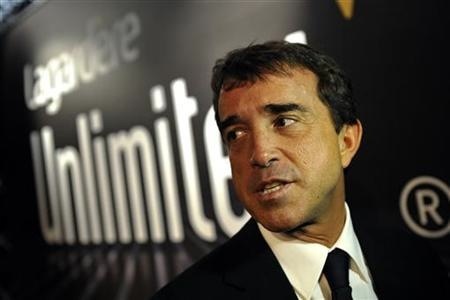

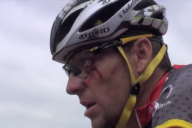




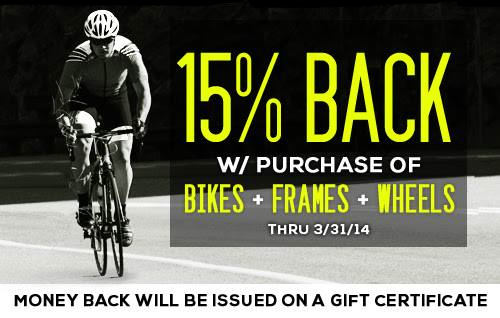

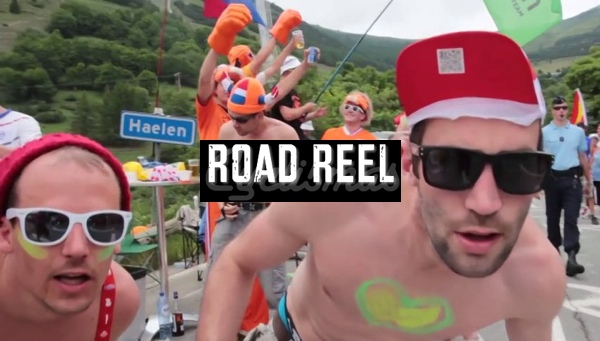
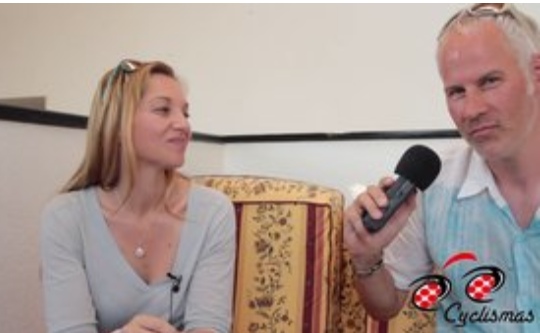
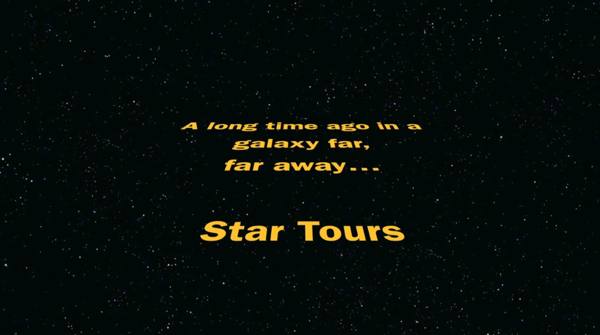
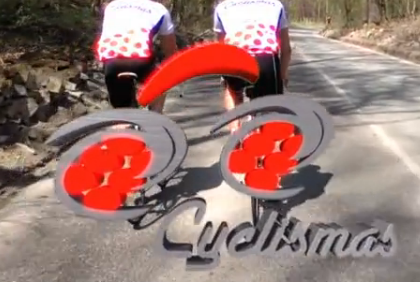

3 Comments
[…] Previously: The man who would be king. […]
[…] Next: The man who would be king: Arnaud Lagardère’s plans for a global sporting empire […]
[…] Lagardere has his fingers in a lot of sporting pies including a couple of cycling races but they’re small potatoes compared to the ASO portfolio. But here’s a what if – what if instead of owning the Tour de France he controls it in another way? Like another businessman obsessed with ASO, what if Lagardere attempts to ‘own’ the Tour by delivering a French winner, rather as Tapie did with his La Vie Claire team? And if you own the company that delivered the sponsors who might just own the Tour de France? […]